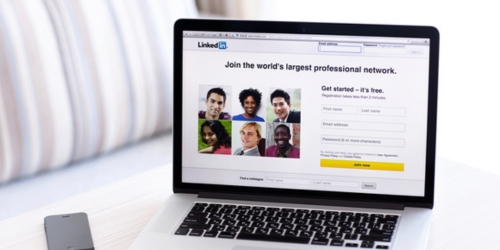When preparing for an interview, I know it can be tempting to focus solely on showcasing your technical skills. After all, they’re often the first thing listed in a job description. But what if I told you that employers care just as much about how well you fit into their team’s culture? It’s true, today’s employers are looking for candidates who not only have the technical abilities to do the job but also share the company’s values and mesh well with their work environment.
If you can highlight both your skills and your culture fit in an interview, you’ll stand out as a well-rounded candidate. In this guide, I’ll put you through how to present both sides clearly, with actionable tips that you can apply right away to increase your chances of landing the job.
What Employers Mean by Skills
Before you walk into an interview, understand this: Employers want to see if you can get the job done. Your skills prove that.

- Hard Skills (The What-You-Can-Do): These are measurable, technical abilities. Coding, content writing, graphic design, budgeting, and using tools like Excel or Photoshop all fall here. These skills are often listed on job descriptions and can be tested.
- Soft Skills (How-You-Work Skills): These are personal attributes like communication, time management, adaptability, leadership, and problem-solving. They impact how you perform in teams, handle feedback, and manage workloads.
- Why Skills Matter:
-
- Skills show you’re capable.
- They help employers predict what’s results you can deliver.
- If you’re missing essential skills, you might not make it past the first interview.
-
- How to Identify the Right Skills:
-
- Break down the job posting. Look for action words like “analyze,” “design,” or “coordinate.”
- If a posting says, “You’ll work with various teams,” that’s a hint that teamwork and communication matter.
-
Quick Tip: Don’t just say “I’m good at X.” Back it up. Example: “I grew email open rates by 20% in three months by restructuring subject lines.”
Read: Mastering the Behavioral Interview: 15 Real Scenarios; Winning Responses
What Culture Fit Really Means
Culture fit isn’t about being best friends with your team it’s about working in a way that aligns with a company’s values and style.
- What It Is:
-
- Culture fit is how well your personality, values, and working habits match the company’s.
- It includes communication style, pace of work, structure vs. flexibility, collaboration style, and leadership approach.
-
- Why It Matters:
-
- A highly skilled employee may still clash with team dynamics.
- Poor culture fit leads to frustration, miscommunication, and early exits.
-
- How Employers Check for Culture Fit:
-
- Through behavioral questions like “Tell me about a time you disagreed with your manager.”
- By watching your body language, energy, and language.
- With personality-fit questions like “How do you prefer to receive feedback?” or “What type of work environment helps you thrive?”
-
Quick Tip: Research is your best tool. Check their About page, social media, employee reviews, and company videos. Look for patterns in how they describe their team.
Skills vs. Culture: Which Matter Most
It depends. Some roles need deep skills, others need collaboration. Many need both. Here’s how to understand where each matters more.

- Technical or Specialized Roles:
-
- Skills are non-negotiable, you must be able to deliver.
- But poor communication or inflexibility can cancel out technical strengths.
-
- Team-Based or Customer-Facing Roles:
-
- Culture fit can outweigh skills. These roles need empathy, positivity, and teamwork.
-
- What Hiring Managers Say:
-
- “I can train someone who’s kind and curious. But I can’t fix ego.”
- “We look for team players, not lone stars.”
-
Skills might get your foot in the door. But culture fit helps you walk through it and stay.
Read: Your 2025 Career Toolbox: Essential Skills to Future-Proof Your Job Prospects
How to Highlight Your Skills in an Interview
Want to talk about your skills effectively? Make them real. Tell stories that show, not just say.
- Use the STAR Method:
-
- Situation: Set the scene.
- Task: What you were responsible for.
- Action: What you did.
- Result: What came out of it.
-
- Customize Your Examples:
-
- Match your stories to what the job description mentions most.
- If they value problem-solving, use a success story about solving a tough challenge.
-
- Show Proof:
-
- If you have a design portfolio, stats sheet, or client testimonial, bring it.
- Mention outcomes: “This improved our customer response rate by 40%.”
-
Quick Tip: Prepare 3 to 5 specific examples in advance. Practice them until they sound natural.
How to Show Culture Fit Without Sounding Fake
Don’t just say “I love your culture.” Show how your values match theirs authentically.

- Answering “Why Do You Want to Work Here?”:
-
- Refer to their mission, team structure, or work style.
- Example: “I love that your team meets weekly to review wins and challenges. That kind of openness motivates me.”
-
- Show Culture Fit in Your Behavior:
-
- Speak respectfully and confidently.
- Avoid sarcasm, negativity, or blame when discussing past roles.
- Express excitement about teamwork, learning, and shared goals.
-
- Nonverbal Cues Matter:
-
- Smile genuinely.
- Nod when listening.
- Avoid interrupting or appearing distracted.
-
- Ask the Right Questions:
-
- “How does the team collaborate across departments?”
- “How do you celebrate milestones together?”
-
Read: Your Chance to Study in the USA: University of Michigan International Scholarship 2025
Blend Skills and Culture in One Answer
Your best interview answers often mix skills and culture naturally. You can stand out by showing both sides in one story.
- Here’s a Strong Example:
-
- “In my last role, we had only three weeks to launch a new product. I led the marketing campaign (skill), but also stepped in to coordinate with design and customer service (teamwork and flexibility). We launched on time and exceeded sales goals.”
-
- Why This Works:
-
- It shows capability and collaboration.
- It reflects initiative and alignment with team values.
-
Quick Tip: When planning stories, think: How did I work with others? What did we achieve together?
Final Tips for Success
A great interview takes preparation. Know the company, prep your stories, and show up as your best self.
- Research Before the Interview:
-
- Look at their mission statement, blog, team bios, or culture deck.
- Try to find shared values or traits.
-
- Practice, But Don’t Memorize:
-
- Rehearse how you talk about skills and values.
- Keep stories short, relevant, and conversational.
-
- Follow Up With Meaning:
-
- Send a thank-you note that includes something specific you appreciated.
- Example: “I loved learning that your team does peer recognition each Friday that’s the kind of support I value.”
-
You don’t have to choose between showing off your skills or proving you belong. Today’s employers want both. By understanding the role, preparing thoughtful examples, and aligning with the team’s values, you can bring your full self to the table and land the job with confidence.


